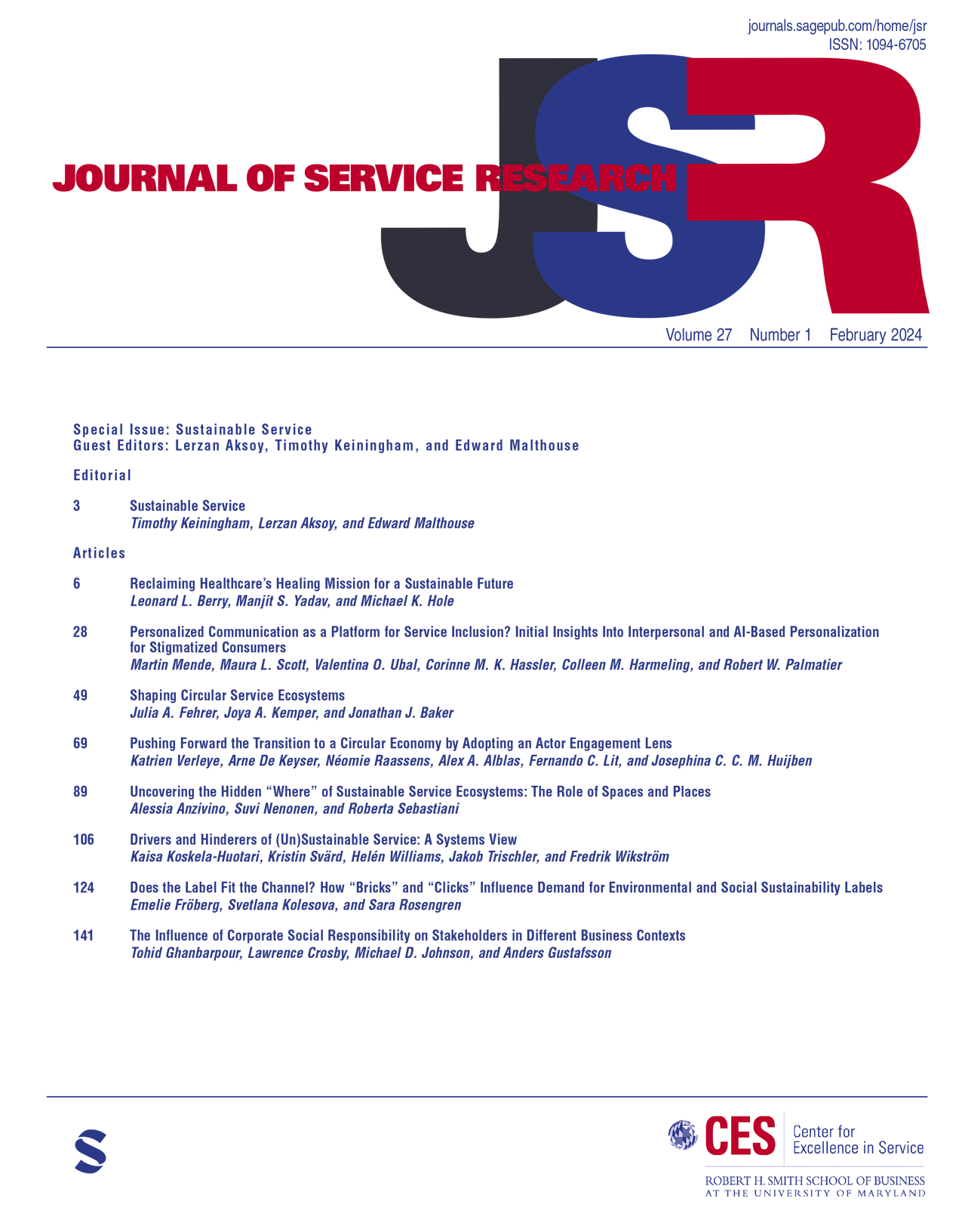Emotion Cycles in Services: Emotional Contagion and Emotional Labor Effects
IF 8.6
2区 管理学
Q1 BUSINESS
引用次数: 51
Abstract
Service organizations encourage employees to express positive emotions in service encounters, in the hope that customers “catch” these emotions and react positively. Yet customer and employee emotions could be mutually influential. To understand emotional exchanges in service encounters and their influences on customer outcomes, the current study models the interplay of emotional contagion and emotional labor, as well as their influence on customer satisfaction. Employees might catch customers’ emotions and transmit those emotions back to customers through emotional contagion, and employee emotional labor likely influences this cycle by modifying the extent to which emotional contagion occurs. Data from 268 customer-employee dyads, gathered from a large chain of foot massage parlors, confirm the existence of an emotion cycle. Deep acting, as one type of emotional labor used by employees, hinders the transmission of negative emotions to customers, whereas surface acting facilitates it. Both customer emotions and employee emotional labor thus have critical influences on service encounters. The findings highlight the importance of understanding the potential influence of customer preservice emotions and the presence of an emotion cycle during service delivery.服务业的情绪周期:情绪传染与情绪劳动效应
服务组织鼓励员工在服务遭遇中表达积极的情绪,希望客户“捕捉”到这些情绪并做出积极的反应。然而,顾客和员工的情绪可能是相互影响的。为了了解服务接触中的情绪交流及其对顾客结果的影响,本研究建立了情绪感染和情绪劳动的相互作用模型,以及它们对顾客满意度的影响。员工可能会捕捉到顾客的情绪,并通过情绪传染的方式将这些情绪传递给顾客,员工的情绪劳动可能会通过改变情绪传染发生的程度来影响这一循环。从一家大型连锁足底按摩店收集的268对顾客-员工的数据证实了情绪周期的存在。深层表演作为员工使用的情绪劳动的一种,阻碍了负面情绪向客户的传递,而表层表演则促进了负面情绪向客户的传递。因此,顾客情绪和员工情绪劳动对服务遭遇都有重要的影响。研究结果强调了理解顾客服务前情绪的潜在影响和服务提供过程中存在的情绪周期的重要性。
本文章由计算机程序翻译,如有差异,请以英文原文为准。
求助全文
约1分钟内获得全文
求助全文
来源期刊

Journal of Service Research
BUSINESS-
CiteScore
20.30
自引率
6.50%
发文量
28
期刊介绍:
The Journal of Service Research (JSR) is recognized as the foremost service research journal globally. It is an indispensable resource for staying updated on the latest advancements in service research. With its accessible and applicable approach, JSR equips readers with the essential knowledge and strategies needed to navigate an increasingly service-oriented economy. Brimming with contributions from esteemed service professionals and scholars, JSR presents a wealth of articles that offer invaluable insights from academia and industry alike.
 求助内容:
求助内容: 应助结果提醒方式:
应助结果提醒方式:


